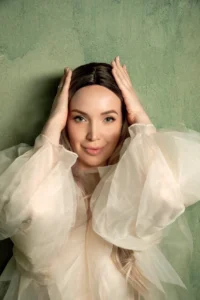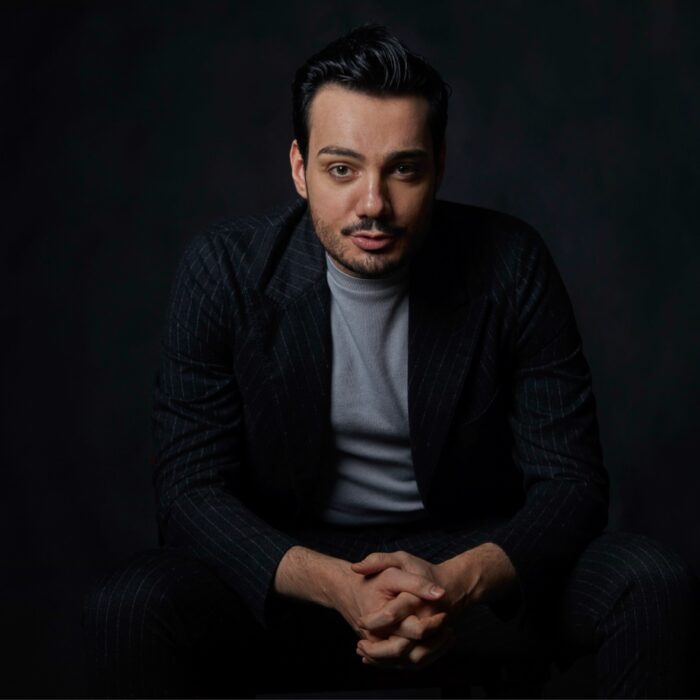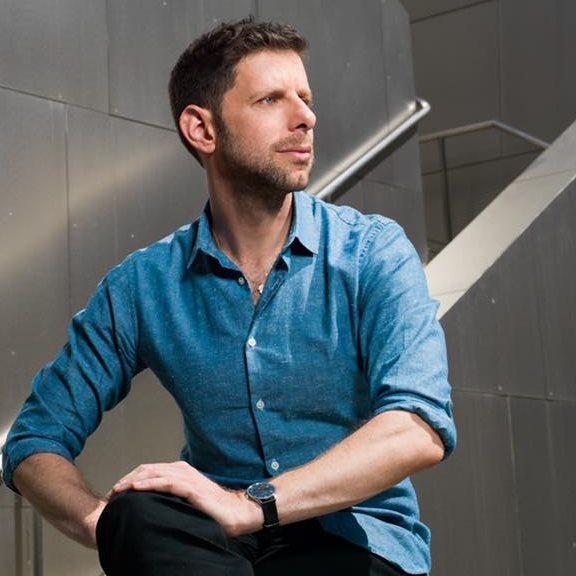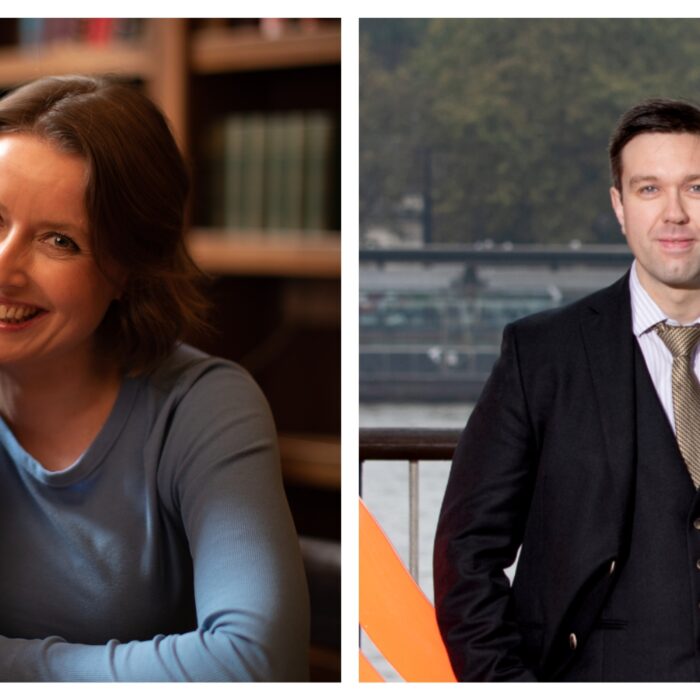
Q & A: Vasilisa Berzhanskaya on Her Opera Career Path & What Keeps Her Curious in Life
By Mike Hardy(Photo Credit: Lena Fainberg)
Born in Russia, mezzo-soprano Vasilisa Berzhanskaya is a graduate of the Russian Gnesin Academy of Music in Moscow and a former member of the Youth Opera Program at the Bolshoi Theatre. Her repertoire encompasses roles of the Italian bel canto of Rossini and Bellini, Mozart, Baroque music such as Vivaldi and Purcell, and roles from Russian opera, by composers such as Rimsky-Korsakov and Tchaikovsky.
Although Berzhanskaya is a mezzo-soprano, in the past she has sung roles ranging from dramatic coloratura soprano (the Queen of the Night in “Die Zauberflöte”) to contralto (Isabella in “L’italiana in Algeri”) As such, she has been described as possessing “a huge vocal range in which she display[s] impeccable coloratura.”
OperaWire caught up with Vasilisa at her home in Siberia, and later in New York where she was appearing at the Met in “Contes D’ Hoffmann.”
OperaWire: Hello Vasilisa. Lovely to speak with you at last! Of course, Visa problems prevented us from meeting and speaking at the Royal Opera House earlier, but at least you made it for your “Carmen” role at the Royal Opera House.
Vasilisa Berzhanskaya: Yes, UK consulate needed more time than we expected for the Visa process. The rules and needed time are always changing. I’m so grateful to the Royal Opera House for waiting for me til the last moment! Important that I got my visa and at the end everything went absolutely unforgettable!
OW: How did Carmen go and what did you make of the production? It received quite a few negative reviews in the press.
VB: I really enjoyed singing in this new production by Michieletto. When I signed for this contract, maybe two-three years ago….for me it was like… something very far away and not happening to me. I didn’t really believe that it would happen to me one moment, such a theatre, such a role! And I debuted Carmen just THIS year a month before London, in Vienna. For every mezzo or sometimes even for soprano, Carmen is like a point of where you arrive at the right moment of your career… This production has a completely different view of this character; I like to work with different directors because I like to improvise and find double possibilities….so for me it wasn’t a strange experience at all and I enjoyed it a lot. I’m always happy to learn new perspectives on characters. And I’m glad when directors offer me to look at it with a new perspective.
OW: You have just finished “Les Contes d’Hoffmann” at the Met. How did that go?
VB: Oh, fantastic. Such a big and very important step forward in my life. Christian Van Horn, Erin Morley, Clémentine Margaine, Benjamin Bernheim, Pretty Yende, Aaron Blake, Marco Armiliato…amazing cast, amazing team, one of the most beautiful productions, live HD in cinemas around the world. What could you imagine better for a debut at the Met?
OW: Of course, you are renowned for your bel canto repertoire. Your Rossini, Handel and Vivaldi work shows astonishing athleticism of your voice. Is that your preferred choice of role and how does singing THAT repertoire compare with singing, say Bizet or Verdi?
VB: I always knew that I had something in my voice that would enable me to sing bel canto repertoire. Thank God I always had someone who I could ask for advice. I started my career in bel canto also because I didn’t want to choose the easiest way of starting my journey, for example being Russian would be logical to start with Russian opera. But to be honest, there were practically no roles for my voice type in the Russian repertoire. Only now, after so many years, I am starting to study the Russian operas and I understand that the lyric soprano repertoire in operas by Tchaikovsky, Rachmaninoff is very close to my voice, but we will talk about this later. Really, thanks to my teachers, thanks to the conductors whom I met who advised me to choose this way, the bel canto way in the right moment. And then, I realized, actually, this is the healthiest way to sing for every singer. You will not be able sing bel canto well if your voice has a strange vibrato, if your voice isn’t flexible, doesn’t have high notes, low notes, secure middle range, if you can’t sing legato and coloraturas. So, because you have nothing to hide behind. You just have to sing perfectly to be a real good bel canto specialist. So, when I understood that I have arrived at this point where I sing it in some very important places with very important conductors, I started to think about to start singing, French repertoire, some Verdi roles; small Verdi roles, I have so far only debuted with small Verdi roles because I really would like to wait; With years you can change your voice, to sing different repertoire but the smartest way and I am sure of it is to learn the style, mature your vocal technique and this combo always gives many more new opportunities; French music, Verdi, modern music- everything is about the style. So, keep your voice, mature your technique, learn the style; That’s it. Just be yourself. And at the moment, I am a bel canto singer, and I really would love to continue this way for as long as possible.
OW: Tell me about growing up in Russia and what were your musical influences?
VB: I think it was my destiny to become an opera singer, because I have no one in my family who is or was a musician. I grew up in a very small town, maybe 60,000 people….and there were no opera theatre, no concert hall where I could listen to opera – nothing. But, from my childhood, I always loved to sing. I don’t know why, but I was absolutely sure that one day I will become a singer, one day I will be on the stage, and I will sing for the big audience. Then, one day, I met the opera world when we were visiting Moscow in one of my summer holidays…and I heard a whole opera for the first time in my life. It was actually a very strange opera to listen to for the very first time. It was an opera by Borodin. After this performance ended, I said to my Mum: “So, in a few years, I will be here. I will sing opera!” And already in a few years I won some opera competition which took place at this theatre where I heard my first opera.
OW: So, which voices did you listen to and take inspiration from?
VB: I remember, the first opera singer I met through a CD was Cecilia Bartoli. And after that moment, I started to listen to all the baroque music, the different orchestras, singers, instrumentalists and of course I listened to everything that Bartoli had recorded up to that moment. I was really crazy about her, and I really wanted to sing like her. I started to imitate her, it wasn’t possible, of course, but I found in this moment that my voice has a coloratura. Of course, it wasn’t a professional coloratura, I didn’t know how to use it in a professional way…. but in just trying to imitate her, I learned a lot from baroque repertoire, and I learned a lot about coloratura. And now to sing coloratura, for me it’s something very natural. And thanks to Bartoli that I listened to her and mimicked her when I was only fourteen.
OW: And of course, you did join the Bolshoi on the young artists program?
VB: Yes, but that was much later. In Russia we have a long education process. First, we study in a music school, then music college, after that a Bachelor degree at Academy or Conservatory, then a Master’s degree. After that you can have a further two years studying as a postgraduate. So, I finished college in the village where I grew up, then I moved to Moscow. Because I knew about the Gnesin Academy and the teacher I wanted to study with. So, after I came to Moscow, I entered a few students’ competitions, I applied for an audition for opera singers in Vladivostok, the audition went well….so there in Vladivostok I had my first professional experience… I sang there from “Carmen,” Micaëla and Frasquita. It happened when I was only twenty. After that I won the second prize in a big TV competition. Still remember how crazy I was at this competition! I sang Magda, “Thaïs,” operettas, Handel etc, all together. I was very young. And after that competition I decided that it’s a time to continue my journey in a more professional way. So, I decided to try to get into the YAP and got in on the first try. It’s absolutely a “bingo” program for a young singer. There we were taught languages, styles, and we had some small opportunities to sing on the stage and to work with conductors and directors. So, after YAP I got a proposal from Deutsche Oper Berlin and I moved to Berlin. For two years it was my home theatre, even until now I feel myself as at home when I’m coming back there because people who gave me opportunity to sing on this stage immediately big roles being so young- fortunately they are still there and I’ll reveal the secret, in 2026 I’ll be back in Deutsche Oper Berlin with one very important project to me, which will take a special place in my heart.
OW: You mentioned that you’re happy singing bel canto roles, and that it is something you are going to continue with, but you also implied to me that you are undergoing something of a change in your direction?
VB: So, after my son was born, I decided I’m ready to add something else, to do more, I’m more ready physically and mentally. I decided to try some new challenges, some new roles, first I tried it with my teacher and coach, they told me that it could be a very interesting idea for a future. So, already I debuted in some real soprano roles. Like this summer I did a debut as Corinna in “Il viaggio a Reims” at the Rossini Opera Festival, and it was very important and successful debut for me. And of course, during last few years I debuted as Norma, as Sinaïde in “Moïse et Pharaon” and in a very challenging role even for a high lyric soprano- as Anna in “Maometto secondo.” Anna vocally is much higher, much more difficult than Violetta for example, and much longer even. And so, I just was looking back on my repertoire, my performances, and I just recognized that all the much more interesting things that happened to me happened in the soprano repertoire. I know that’s strange, but I feel really much more comfortable and much more secure singing soprano, and I feel that I can give and explain more than when I sing mezzo roles. We have many examples where singers have changed their fach between mezzo and soprano. And they were doing it even a few times in their career. Let’s look at the careers of Violeta Urmana or Shirley Verrett. But also, I discover the voices of the past. I’m talking about those singers for whom Rossini, Bellini, Donizetti and other composers were writing the operas. I have had many different proposals in the past to perform in different concerts in memory of, for example Giuditta Pasta, or Maria Malibran, or Isabella Colbran and these three singers just inspired me with their careers and of course with their repertoire. I started to wonder what kind of voice Giuditta Pasta had, for whom “Norma” was written. She was singing “Norma,” Amina, (“La sonnambula”), then “Tancredi.” So, her repertoire was from contralto to high lyric soprano. Then I started to look at the repertoire of Malibran. And what I see, she sings Norma, she sings Imogene (“Il Pirata”), at the same time she sings Amina, “La Cenerentola.” A repertoire all so different with a predominance of soprano roles but it’s written that she had a mezzo voice. Then I see the career and repertoire of Isabella Colbran, one of the wives and muse of Rossini, and since I debuted at the Rossini Opera Festival in Pesaro in a Colbran’s role and it had I very big and very unexpected success to me, I pay special attention to Colbran roles and have already sung several and the following debuts are already planned for the future. Colbran had a soprano voice with a mezzo soprano opportunities. The roles which Rossini wrote for her, it’s simply a big challenge and sometimes seeming absolutely beyond the bounds of what is possible to be performed by the human voice because the tessitura, extremely high notes, extremely low notes, complicated coloratura, pure legato, dramatic moments requiring dramatic vocal modulations, everything all possible difficulties you can find in the roles that Rossini wrote for her. And we can see these different kinds of voices in operatic repertoires which one opera can include at the same time. Look at “La Traviata.” You start with all this coloraturas of lyric high soprano, and you finish with full lyric spinto. Not only “Traviata,” but many roles are also written in this way. What if we look at how Vitellia or Fiordiligi were written? This speaks of the absolute universality of the singers who lived in the past for whom so many operas were written. So, I decided, being inspired so much by Pasta, Malibran, and Colbran why not try to think about this way. Work on your vocal technique, styles and sing the repertoire which fits your voice. And now I’m finding this repertoire mostly in soprano. Step by step in concerts I add some soprano arias in my repertoire, every year I add and I’m planning to add one-two soprano roles. This season I already sang Corinna and I’m looking forward to singing my first Tatiana in “Onegin” and “Alcina,” then I return to sing Norma again. Then I already have a plan to sing my first Liú and Fiordiligi.
OW: Did becoming a mother affect the way you sing, or your ability to sing?
VB: Something has changed and for the better. Fortunately, I didn’t have a break in my career, everything went absolutely unnoticed. I was actually performing two weeks before the birth. And then, two weeks after, I started to sing again. Some singers stop for a period when becoming a mother, but I didn’t want to and fortunately my health allowed me to carry out my plan. I can’t say it was easy….it wasn’t easy, but thank God, I didn’t feel any change in my voice, It was only after a couple of months that I felt some growth, maturation and the understanding came to me that I could begin to consider a more complex repertoire. Although now, I can say I feel my voice to be more secure…. secure in the tessitura, to be calmer and more grounded. During the pregnancy I learned to control my voice much better because when you have all this extra weight, when you feel constant physical fatigue day after day, but you force yourself to work on equal terms with everyone around, you really have to control your voice 100%. So now I have this feeling of extra control with me, I continue to work on my vocal technique I do it even more now because the new repertoire obliges you to be in constant training and growth. So, every moment in your life can change your voice, and can give an extra opportunity to maybe try things in a different direction. Being a mother really gives you something. As I absolutely can’t sit still without “challenges.” Now, I’m discovering many interesting repertoires, in Mozart’s like Contessa, like Elettra; of course, Donna Elvira, Vitellia, and I find it so well suited to my voice, which is… who knows what type of voice is it? I am glad that I have a few people to whom I can come for an advice at a certain moment. So, step by step I’m taking this huge path, and I’m really excited about that.
OW: You’re clearly very serious and determined in your work. What do you like to do when you are not singing?
VB: Of course, now I’m trying to spend as much time as I can with my baby, but then, everything depends on where I am. If I am in London or New York, I visit all of the musicals. I just love visiting musicals! “Matilda,” “Mrs. Doubtfire,” “Hamilton.” I’m a big fan of musicals. For me, it’s amazing how they combine everything. I am learning from them. How they do these incredibly energetic shows, how they use a space, how they use special effects. Then, of course, I discover good restaurants. I’m a big eater! Can I say that? (laughing). I’m an eater (in Italian I would say “buona forchetta”) and I love to discover the places to try the local cuisine. So, if you ask me wherever you are, where is the best place to eat, I easily can tell you (laughing). One day I will write a book about where to eat around the world! I also love to spend my holidays at the sea. Living in Siberia you are really missing the sun! I love to spend time with my family and friends. Of course, I always try not to miss interesting concerts and performances where my colleagues are. We are two types of singers; some of us never go to the opera or listen to our colleagues, and I am definitely the other type. I really love going to the opera and different concerts.
Categories
Interviews


